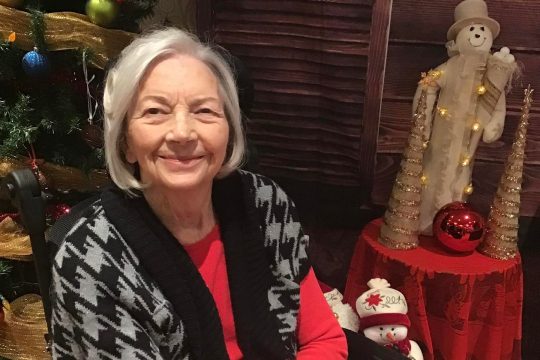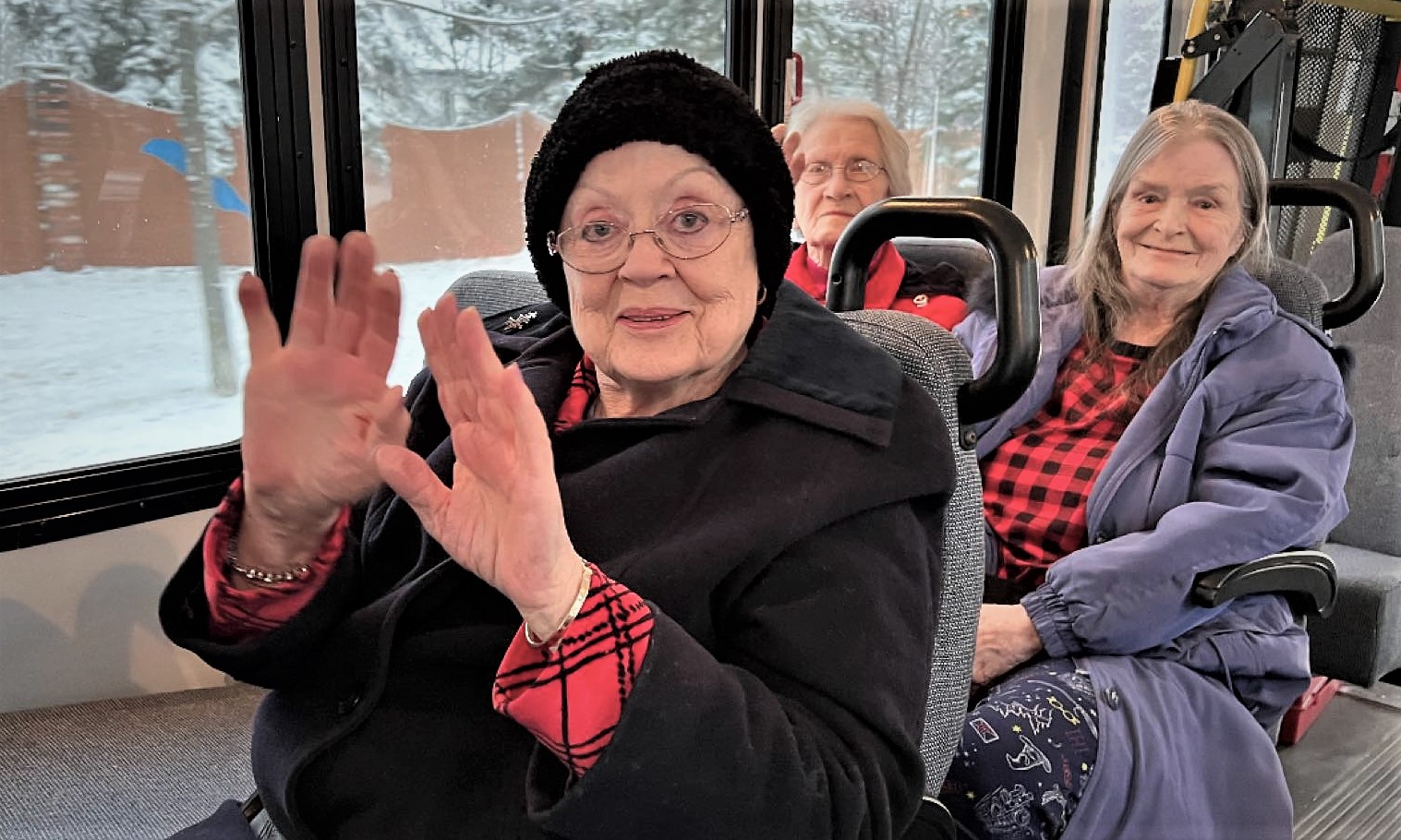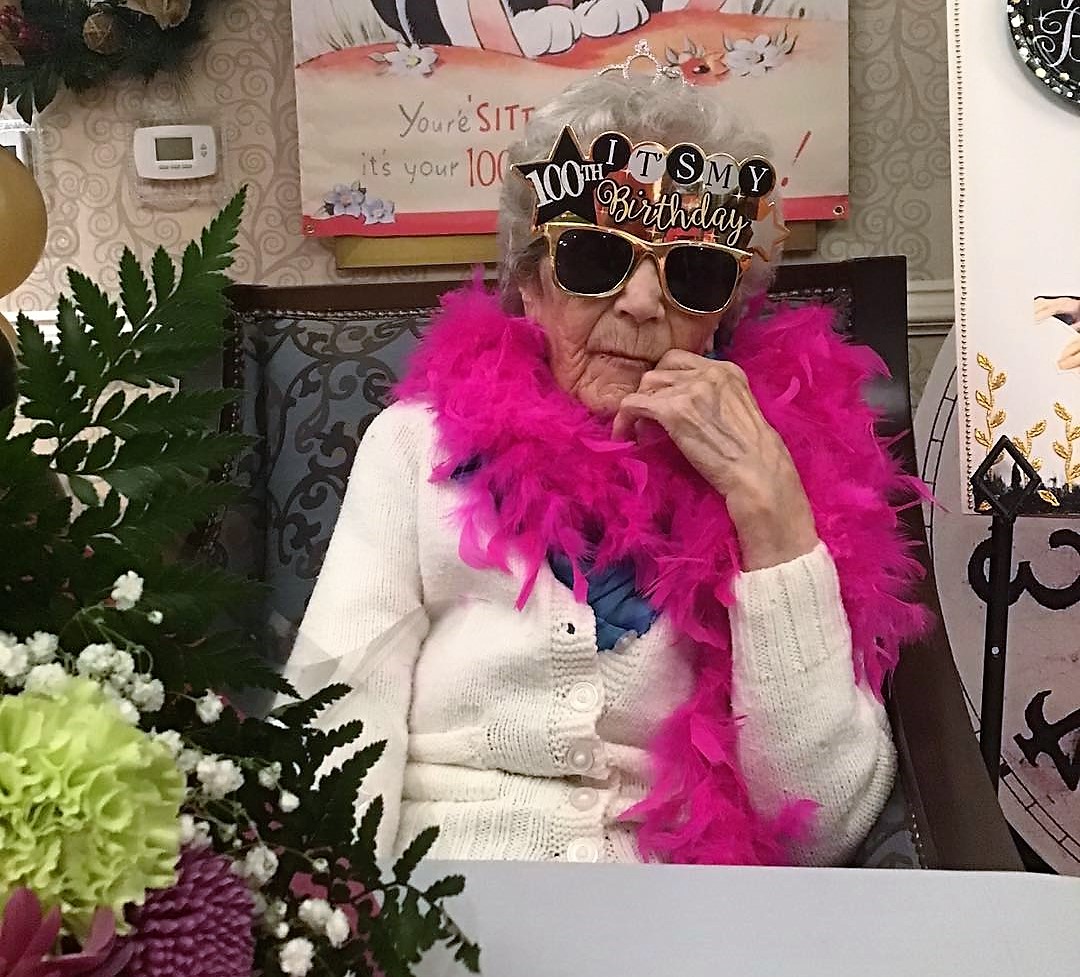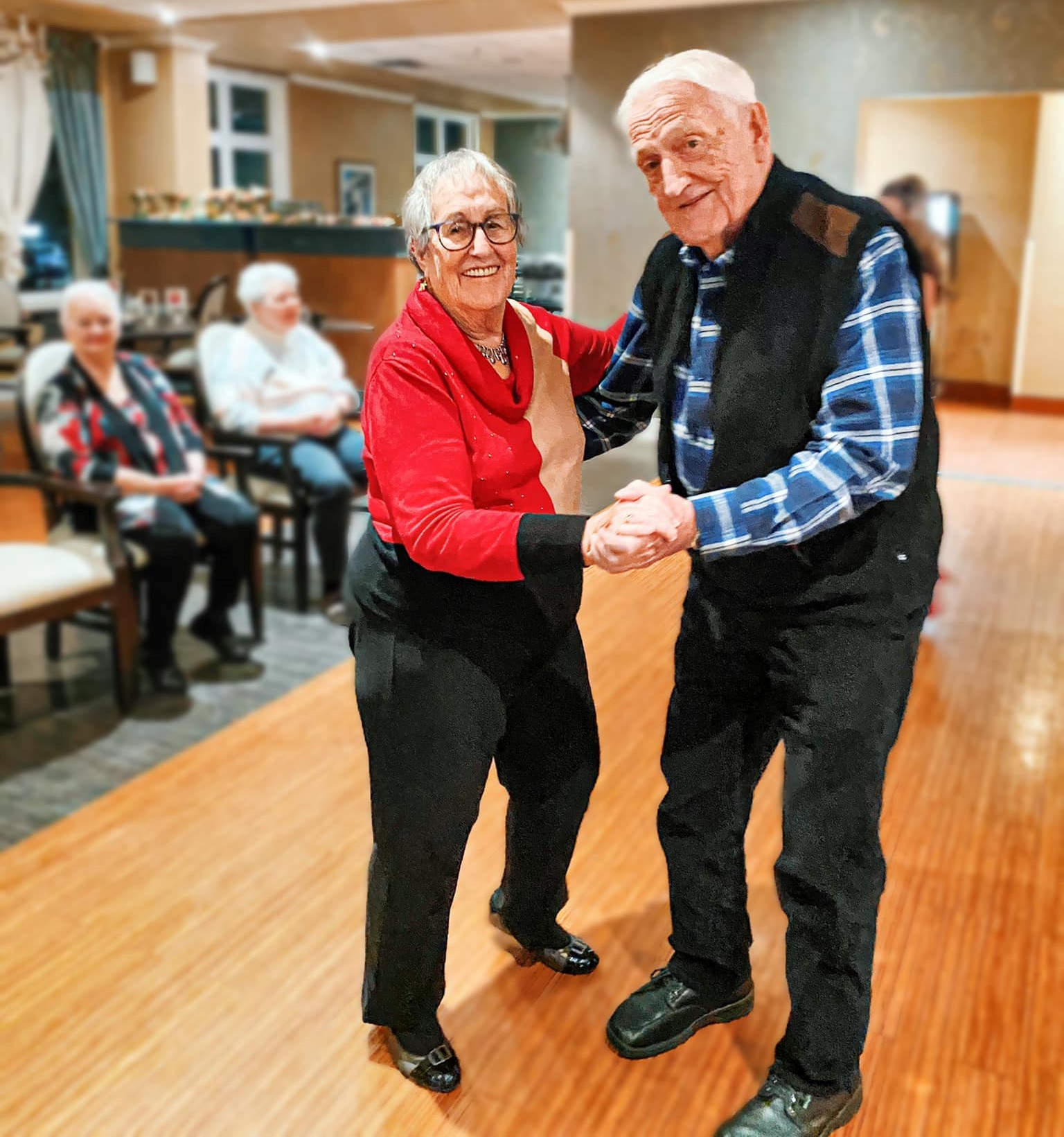
From bitter-cold winters to lengthy summer heat waves, Canadians are used to sharp weather swings. Adapting to seasonal variations is part of our national DNA.
In 2021, we all felt the impact of climate change as extreme weather events shattered records around the globe: storms, heatwaves, droughts, wildfires, and record-breaking cold. As we settle into the new year, Environment Canada is again warning people to limit time outside as bone-chilling temperatures blanket most of the country.
Feeling Colder as You Get Older? Here’s Why.
When the temperature rises and falls, some seniors find it difficult to adjust. According to MedlinePlus, “As you get older, it becomes harder for your body to control its temperature.” This can happen for several reasons:
- A decrease in fat and thinning skin makes it harder to conserve heat.
- Your metabolism slows. It’s normal for your metabolic rate to decrease, and along with it, your body’s response to the cold. For example, skin receptors may not work as quickly to tell your blood vessels to constrict and maintain your body temperature.
- Your blood vessels loose elasticity, which slows circulation. When your blood doesn’t circulate normally, it’s harder for your body to retain heat. This could also be due to health conditions or medication side effects.
- You do not shiver as much. Shivering warms the body.
- Your cognitive awareness of temperature may change.
As an older adult or family caregiver, what can you do to stay safe and comfortable through the coldest days winter? Here are a few ways to help seniors manage extreme weather conditions.
Cold Weather Safety Tips for Older Adults
1. Keep the thermostat in the “Goldilocks” zone — not too hot, and not too cold. Many experts recommend keeping the thermostat set to 68-70 degrees Fahrenheit (20-21 degrees Celsius) or warmer during the winter months. Too much higher, and your loved one could be dealing with dry, hot air, which can promote bacteria growth and lead to illness. Too much lower, and your loved one may be at risk of hypothermia and other chilly complications.
2. Embrace hygge – break out blankets and pillows. What could be cozier than bundling up when the temperature drops? Encourage your loved one to use extra blankets to stay warm when sitting in their favourite chair or getting into bed.
3. Bundle Up on Windy, Cold Days. Wearing layers can help you stay warm, even as the temperature falls. When going outside, wear multiple layers of loose-fitting, waterproof clothing that covers as much skin as possible. Avoid frostbite by donning a hat and gloves to protect the extremities. Indoors, consider a cozy sweater to help trap body heat.
4. Watch out for ice and snow. Ice and snow can pose a serious threat to seniors. Research suggests that cold weather can make it more likely for seniors to experience falls. Help your loved one keep their pathways clear. Give elderly persons a supportive hand when they go out to avoid a slip and fall accident on an unexpected patch of ice.
5. Eat a healthy diet. We’ve all felt the allure of “comfort food” during fall and winter, with good reason. When you eat food that’s high in healthy fats, proteins, and carbohydrates, your body will take longer to digest. This longer digestion process raises your internal body temperature, warming you from the inside out.
6. Stay hydrated in winter. Make sure to drink enough water in winter (8-10 glasses a day), even when not feeling thirsty! It may sound counterintuitive, but the risk of dehydration is higher in the winter than summer – people just aren’t as thirsty. Opt for water rather than alcohol, soda, or caffeine-laden beverages.
7. Be mindful of the “winter blues.” Cold weather means that seniors stay indoors more, which can lead to anxiety, sadness, and cabin fever over time. While at home, keep active and mobile to increase blood flow, raise body heat, and protect your mental health. To stay positive, take part in safe, social activities like those offered at All Seniors Care residences.
How To Help Someone with Dementia in Winter
Winter can be a particularly difficult time for those living with dementia. The harsh weather and colder temperatures can bring about specific challenges and make symptoms temporarily worse.
All the tips listed above apply. Here are 4 more ways to help support somebody living with dementia in cold weather.
1. Prevent Hypothermia
When the cold weather months hit, there is an increased concern for hypothermia, especially among the elderly and those with Alzheimer’s and dementia. Hypothermia is a low body temperature that can cause serious repercussions such as memory loss, exhaustion, slurred speech, and more.
Caregivers can make sure that the individual with dementia is dressed properly with extra layers. People with Alzheimer’s struggle more with temperature and weather awareness, making it challenging to properly dress themselves for cold conditions.
Keep in mind that people with dementia aren’t always able to communicate that they’re cold – or they may not even recognise it themselves.
2. Make the most of natural day light
Staying indoors and the decreased sunlight during the winter months can cause restlessness and sleep disturbances or even increase sundowning.
Get outside whenever possible, whether it’s a ten-minute walk to the shops or a trip to a nearby park. Natural light and physical activity are a proven, winning combination, that help boost mood and reduce stress.
3. Stick to a routine
A change in routine can cause someone with dementia to become confused or agitated. If you do have to make changes to someone’s routine in winter – for example, changing nap times or daily walks due to limited daylight or icy conditions – try to make the changes gradually.
4. Avoid the use of space heaters
Electric space heaters may seem like a great alternative to staying warm, but they can pose a fire hazard, especially for those living with memory decline.
Seniors living in memory care or assisted living at All Seniors Care have in-suite temperature control, so space heaters are not necessary. The systems are regularly maintained, and all suites have carbon monoxide detectors.
Winter Wellness at All Seniors Care
Winter certainly poses challenges for seniors, but with awareness and planning, they can stay healthy and be ready for spring.
All Seniors Care is dedicated to the highest quality of life possible to keep older adults happy and healthy as they Age-in-Place. Our BLOSSOM program engages people living with cognitive decline physically, emotionally, mentally, and socially ─ and provides a system of care that addresses safety, nutrition, mind, body, and activities of daily living (ADLs) in winter, and all year round.
To find out more, call us anytime. Explore our assisted living in Saskatoon, or retirement homes in Kingston . A great retirement community is one that brings people out of their winter hibernation and gets them moving, laughing, and enjoying life to the fullest.
Writer – Julianna McLeod
Julianna is a health and wellness expert at All Seniors Care. Her mission is to create content that empowers older adults to form sustainable solutions for lasting health and happiness. She is an experienced writer, editor, and Recreational Therapist living in Toronto.


